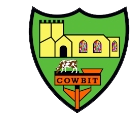Mathematics
Maths Intent
At Cowbit St Mary’s Church of England Primary School, children understand and respect the importance of Mathematics in everyday life. We endeavour to provide all of our children with a rich, engaging and ambitious Maths curriculum that is sequential and progressive and which develops in them, an ability to solve problems, reason, think logically and work systematically and accurately.
At Cowbit St Mary’s Church of England Primary School, we have devised our own Maths LTP informed by the progression of the ‘White Rose’ schemes of learning as the basis of our daily Maths lessons with additional activities and resources used to supplement our curriculum and develop our children’s reasoning and problem-solving skills. ‘Flashback’ activities are completed daily to ensure that children’s recall of prior learning is embedded and secure and to allow them to make connections between areas of Mathematics. We firmly believe in the importance of securing early number concepts and through the use of ‘retrieval’ tasks ensure that our children can confidently recall number facts with increasing fluency. New mathematical concepts are introduced using a ‘Concrete, Pictorial and Abstract’ approach, which enables all children to experience ‘hands-on learning’ when learning new mathematical topics. They can then use these clear models and images to aid their understanding when working more abstractly. Our aim is for every child to leave Cowbit St Mary’s Church of England Primary School armed with a range of strategies and skills that will help them to further their life experiences.
The Teaching of Multiplication Facts
Arithmetic and basic maths skills, including multiplication tables, are practised regularly to ensure key mathematical concepts are embedded. We firmly believe that fluent recall of multiplication and corresponding division facts is vital to develop in children the ability to solve both written and mental calculations with speed and fluency.
The National Curriculum states that, ‘By the end of Year 4, pupils should have memorised their multiplication tables up to and including the 12x multiplication table and show precision and fluency in their work’. With this in mind, we ensure that our children regularly recall multiplication and corresponding division facts.
The table below provides a breakdown of the expectations for each year group in terms of counting and the recall of multiplication and corresponding division facts:
|
Year Group |
Recall of multiplication and division facts |
|
Year 1 |
Count in multiples of 2, 5 and 10. Recall and use doubles of all numbers to 10 and corresponding halves. |
|
Year 2 |
Recall and use multiplication and division facts for the 2, 5 and 10 times tables, including recognising odd and even numbers. |
|
Year 3 |
Recall and use the multiplication and division facts for the 3, 4 and 8 times tables. |
|
Year 4 |
Recall and use multiplication and division facts for multiplication tables up to and including 12 x 12. |
|
Year 5 |
Revision of all multiplication and division facts up to and including 12 x 12. |
|
Year 6 |
Revision of all multiplication and division facts up to and including 12 x 12. |
In Maths lessons throughout school, high quality questioning is used so adults can quickly address misconceptions and move learning on. Scaffolds and worked examples are displayed on the ‘Working Wall’ in every classroom to support children’s learning and from EYFS through to Year 6, the classrooms are enriched with mathematical vocabulary to support the children with talking about their mathematical learning and to use in both written and verbal mathematical explanations. This enables the children to verbalise, discuss and explain their mathematical thinking using the correct mathematical vocabulary.
